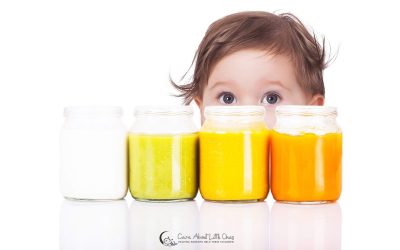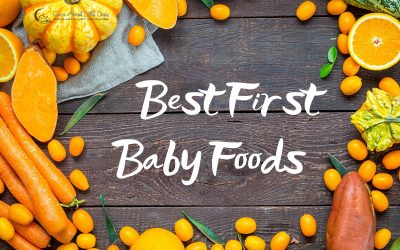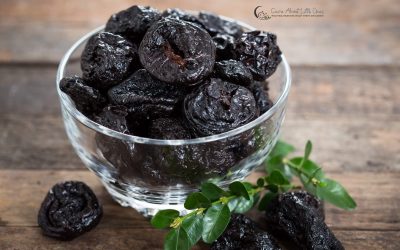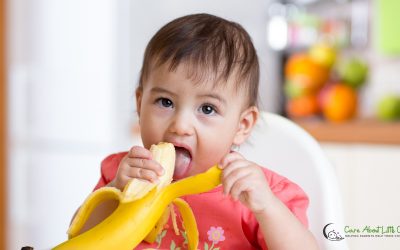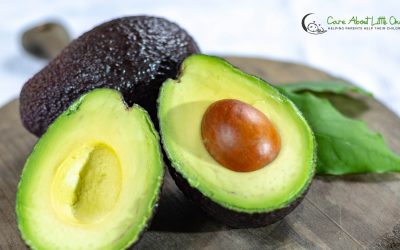Anti-Colic Diets For Breastfeeding Mothers: Do They Work?
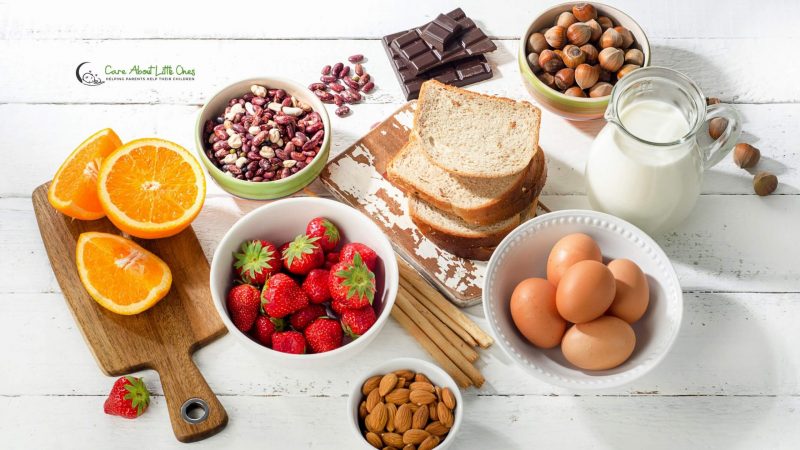
Table Of Contents
Why Experts May Not Be Able To Help You
Excluding Allergenic Foods From A Mother’s Diet To Avoid Baby Colic
Excluding Cow’s Milk From A Mother’s Diet To Avoid Baby Colic
Excluding Various Other Foods From A Mother’s Diet To Avoid Baby Colic
Excluding FODMAP From A Mother’s Diet To Avoid Baby Colic
What Do Scientists Recommend After All?
What Are My Observations As Practitioner?
So What Should You Really Do Now? Restrict Your Diet Or Not?
What Can You Do If You Want To Restrict Your Diet To Help Your Colic Baby
So, do anti-colic diets for breastfeeding mothers really work? To date, the topic is still controversial. There are scientists which claim that eliminating certain foods reduces the overall crying / fussiness time in breastfed colic babies, particularly allergenic foods and foods which contain high levels of FODMAP. However, more recent studies have put the results of those former studies into question.
Moreover, it educates about what foods not to eat according to scientists when breastfeeding a colic baby. And finally, it informs about the things to consider before making a decision if you should restrict your diet or not.
Why Experts May Not Be Able To Help You
As stupid as it may sound. There may be a simple reason why such experts are not being helpful in that particular case! They just don’t know it any better.
Note that doctors have no other option than relying on the findings of scientific studies. Yet, to date, there are only a few scientific studies on this subject. Plus, we cannot even be sure, if those studies are reliable or not.
But let’s have a look at what scientists have found so far!
Excluding Allergenic Foods From A Mother’s Diet To Avoid Baby Colic
In 2005, scientists investigated, if excluding allergenic foods from a breastfeeding mom’s diet reduces the amount of her baby’s crying (1). Therefore, they asked 53 mothers of breastfed colic babies to exclude cow’s milk, eggs, peanuts, tree nuts, wheat, soy and fish from their diet.
Learn more about this study
The scientists concluded that a low allergenic diet seems to reduce colic symptoms in breastfed babies.
Side Note: What is a "Control Group"?
What You Need To Keep In Mind:
However, an average improvement of 86 minutes less crying/fussing per day is a fantastic result if you ask me… ?
Excluding Cow’s Milk From A Mother’s Diet To Avoid Baby Colic
Earlier studies have already investigated, if a low-allergenic diet is able to reduce symptoms of colic in babies. But those studies focused on cow’s milk only.
Let’s have a look at their findings:
In 1978, scientists saw colic disappear in 13 out of 19 breastfed babies when their mothers restricted their diet. During the study, the breastfeeding mothers were only allowed a diet free of cow’s milk protein (3).
At least as surprising was what happened when they reintroduced cow’s milk in the mother’s diet. Colic reappeared in 12 of the breastfed infants (3)!
The same scientists repeated their study in 1983 with 66 breastfed babies with colic. And again, colic disappeared in 35 of those infants. Moreover, it reappeared in 23 babies once cow’s milk was reintroduced in the mother’s diet (4).
However, similar studies came to different conclusions. A study of Evans from 1981 did not find that the exclusion of cow’s milk from a mother’s diet plan reduces colic in breastfed babies (5).
Please keep in mind: none of the three studies above had control groups in place! However, control groups are an important tool in scientific studies. Without them, we do not know, if the improvement of colic would have happened anyways and not just because of the restriction of the mother’s diet. So, are those results really reliable?
Looking for ways to help your baby with colic?
Check out my Shonishin Baby Colic Massage Course and learn how to help your little one!
Excluding Various Other Foods From A Mother’s Diet To Avoid Baby Colic
In 1995, a scientist called Lust and his colleagues (6) investigated 272 exclusively breastfeeding mothers. They asked them questions about the behavior of their colic babies (aged <= 4 months). Moreover, they collected information on their intake of 15 different kinds of food.
They found that mothers of colic babies have a higher intake of the following foods:
- Some cruciferous vegetables (cabbage, cauliflower, broccoli)
- Cow’s milk (again)
- Onion
- Chocolate
And just that you know: the study of Evans that I mentioned earlier, found too that the frequency of colic seems to be much higher on days on which mothers reported eating chocolate (5). Bad news for many mothers (including myself).
What You Need To Keep In Mind
But don’t start eliminating these foods from your diet plan just yet! There are a couple of things you should know about this study:
The way that study was conducted, is very basic! There is no control group, no tests, no nothing. They only just compared, how likely it is that a mother of a colic baby eats certain foods with how likely it is that a mother of a colic baby does not eat that same food.
That’s great to get some basic insights! However, we cannot really derive from such studies that their results are valid for all colic babies out there.
And that is, after all, the ultimate goal of science. Investigate a few subjects and try to find out, if the results are valid for other people as well.
Side Note: Which foods were not associated with baby colic?
Just in case you are interested! Here are the foods which – according to the study, were not associated with colic symptoms:
- Beef
- Beer
- Brussel sprouts (which also happens to be a cruciferous vegetable by the way)
- Carrots
- Dried beans
- Eggs
- Garlic
- Green peppers
- Oranges
Alice Callahan, author of the book “Science of Mom”, made a funny comment on this study: “If you have a colic baby, choose carrot cake and beer over chocolate chip cookies and milk! (7)” I could not agree more ? (obviously, I mean that in an ironic way).
Unfortunately, to date, it is the only study which has investigated the effects of such kinds of foods. More studies would be needed to confirm their results.
Excluding FODMAP From A Mother’s Diet To Avoid Baby Colic
Definition: What is "FODMAP"?
Such carbohydrates are not absorbed into your bloodstream. Instead, they reach the far end of your intestines where gut bacteria use them for fuel while producing hydrogen gas.
The scientists restricted the diet of 18 mothers of colic babes (aged between 2-17 weeks) to a low FODMAP diet. On days 5, 6 and 7 they had to complete a baby day diary.
The crying duration of babies of the mothers who were on a restricted diet, fell by 52 minutes per day. Moreover, the combined crying and fussiness duration fell by 73 minutes.
Other factors, such as infant sleeping and feeding did not change. However, at the end of the study, mothers reported that their baby is “much more content”. Moreover, they said that their baby “can be put down without crying”.
What You Need To Keep In Mind
Please keep in mind that the scientists only included 18 mothers in their study. That number is very low. However, having a small sample size does not mean that the results are wrong.
Unfortunately, I have not been able to find similar studies. There is only one study which finds that eliminating gas-producing foods from a mother’s diet does not have any effect on colic symptoms in babies (10).
Unfortunately, I have not been able to find out, what the scientists mean exactly by “gas-producing” foods. But since high FODMAP foods do produce gas, the subject of the study on gas-producing foods is at least similar to the study on FODMAP.
To sum up, restricting a mother’s diet to low FODMAP foods was found to improve colic symptoms in babies. However, the study did not include many subjects.
So, What Do Scientists Recommend After All?
As we have seen, there are some studies which come to the conclusion that the elimination of certain foods from a mother’s diet decreases the overall crying/fussiness time in breastfed babies.
Accordingly, the scientists of those studies recommend eliminating the following foods from a mother’s diet:
- Allergenic foods (cow’s milk, eggs, peanuts, tree nuts, wheat, soy, fish and, most importantly, cow’s milk)
- Some cruciferous vegetables (cabbage, cauliflower, broccoli)
- Onions
- Chocolate
- Foods which contain high levels of FODMAP
On the other hand, there are scientists like Gordon and his team (2) who warn that breastfeeding mothers should interpret the results of those studies with caution.
They argue that the studies that we have seen so far are not reliable. Mostly for the reasons that I have mentioned already, but also for other reasons.
(Just in case you are a science geek: Gordon accuses them of “selection, performance and reporting bias”.)
Definition: What is "Bias" in science?
As you can see, to date, scientists have not yet come to an agreement as to whether anti-colic diets for breastfeeding mothers have an effect on baby colic or not. So let’s have a look at what I am observing as a practitioner!
What Are My Observations As Practitioner?
The Majority Of Mothers Believes That Her Diet Does Cause Colic
In my experience, the majority of moms of breastfed colic babies believes that their diet does cause baby colic. However, that belief is mostly based on what they have read “somewhere on the internet”. In minor cases, it’s what family and friends have told them.
As a result, many of them eliminate certain foods from their diet. Yet, what they restrict themselves to, could not be more diverse.
Some exclude “foods that make them gassy”. This could really be anything from gluten and broccoli, to chocolate and spicy foods. Others exclude dietary products made from cow’s milk. And again others exclude certain fruits or vegetables or other things.
Indeed, scientists have made the same observations as I did. According to a study (12), most mothers believe that their baby’s colic is related to their diet. Typical foods which they exclude are beans, caffeine, cruciferous vegetables, garlic, gluten, onions and spicy foods.
The only problem is: none of them has been able to confirm that restricting their diet really helps their babies.
There Doesn’t Seem To Be A Common Basis For Anti-Colic Diets
This leads me to my second main observation. Many mothers claim that their baby clearly develops more colic symptoms after they (the mothers) have eaten certain foods.
Among the foods mentioned, one can find things like broccoli, onions, apples, gluten, spicy foods, fries, cow’s milk, soymilk, chocolate and others.
The only problem is: there is absolutely no common basis. What is true for one mother, may not be true for another mom at all. So, it really comes down to a mother’s own observation.
Looking for ways to help your baby with colic?
Check out my Shonishin Baby Colic Massage Course and learn how to help your little one!
So What Should You Really Do Now? Restrict Your Diet Or Not?
As we have seen, to date, we do not really know if anti-colic diets for breastfeeding mothers work.
Neither can science currently tell us what to do. Nor are any practical observations useful to make a decision. That’s because each mother makes a different observation. There is just no common basis.
What’s even worse: in my experience as a practitioner, the underlying causes of colic are different from baby to baby. So even if we knew that allergenic foods can cause colic, it does not necessarily mean that this is true for your own baby too!
Because of that, all that you can do is give it a try – or don’t. After all, if you really bear the burden of a colic baby, you clutch at any straw you can possibly find!
So, here are the things that you need to keep in mind before making a decision if you should restrict your diet or not:
1 There Could Be Other Reasons:
2 How Do You Know If It’s A Success?
Second, the question is, “by how much” restricting your diet can decrease the overall cry/fussiness time of your baby. In other words, how can you be sure that eliminating certain foods is really a success?
Is an improvement of 30 minutes per day a success? Do you want your baby not to be fussy at all? What are your expectations? And how will you know if your efforts are a success?
3 You And Your Baby Need Nutrients
Third, despite the fact that they may be allergenic, many of the foods which you are supposed to eliminate according to science may provide valuable nutrients which the mother passes on to her baby through her breastmilk.
Therefore, if at all, restricting your diet should only be done under the supervision of a nutritionist! Make sure your diet is balanced enough and contains all nutrients that you and your baby need.
4 Early Exposure To Allergens Could Be Important!
Fourth, keep in mind that eliminating allergenic foods from your diet could also have negative effects on your baby.
A growing number of scientific studies find that early-life exposure to allergens could actually be beneficial to avoid allergies in the future (13). In fact, they found evidence, that high levels of exposure could cause the immune system to be “better educated”.
However, this only seems to be the case if that exposure happens in early infancy (14).
A similar study from the UK (15) found that infants of mothers who reported avoiding allergenic foods from their diet during pregnancy were more likely to develop a food allergy than those infants whose mothers reported a full diet. Such allergenic foods include peanuts, tree nuts, eggs, seeds and shellfish.
Likewise, a study from 2012 (16) finds that the avoidance of cow’s milk during breastfeeding suppresses IgA levels in breast milk and serum IgG levels in babies. Both, IgA and IgG are antibodies.
They conclude that avoiding cow’s milk during breastfeeding might be counterproductive in preventing food allergies.
What Do You Need To Do If You Want To Restrict Your Diet To Help Your Colic Baby
1. Decide Which Foods To Eliminate!
- Foods containing eggs
- Peanuts
- Tree nuts
- Wheat
- Soy
- Fish
- Cow’s milk and cow’s milk protein.
2. Consider The Low FODMAP Diet As An Alternative!
3. Get In Touch With A Nutritionist!
Third, never start restricting your diet on your own!
It is a process that needs proper monitoring! Therefore, restricting your diet should only be done under the supervision of an expert (for example, a nutritionist).
Make sure that your body and subsequently your baby’s body receive enough nutrients next to an adequate caloric intake (17).
4. Include A Pediatrician!
5. Track Your Success!
I recommend that you keep a diary to document the duration of both fussiness and crying per day. Also, make sure to start with that diary well before you start restricting your diet. That way, you are able to compare the cry/fuss durations before and after you have restricted your diet!
6. Give It 2 Weeks!
Keep in mind that your body went through a lot during pregnancy! You don’t want to put it through even more by restricting your diet when in fact, it does not even make sense to do so!
7. Do Not Discontinue Breastfeeding!
However, please do not prematurely discontinue breastfeeding (18), if you see that restricting your diet does not lead to the desired effect! After all, isn’t that a sign that your own diet does not cause colic in your baby?
Keep in mind that breast milk is the best possible form of nutrition that a baby can possibly receive! Therefore, it is not advisable at all to replace it by formula feeds.
Moreover, keep in mind that baby formula from cow’s milk is an allergenic food too!
And just in case, you were wondering, if you can switch to alternative formula milk, keep the following in mind:
- Soy products like soy-based formula milk should not be used on infants with food allergy under six months of age (19). Moreover, the use of soymilk is not supported by experts because of concerns that it may impact the baby’s hormones (2).
- Goat’s milk has no clear nutritional advantage over cow’s milk. But most importantly, it is not less allergenic (20).
- And finally, to date, it is also unclear if hydrolyzed formula milk has any advantage of standard formula milk. Not even when it comes to reducing colic symptoms in babies. The few studies that do exist have mixed results (2).
Summary & Conclusion
Several studies have suggested that eliminating certain foods can reduce the overall cry/fuss time in colicky exclusively breastfed babies. Such foods are allergenic foods, cruciferous vegetables and foods which contain high levels of FODMAP. However, their results have been challenged by other scientists.
Of course, as a mother of a colic baby, you try everything that can possibly help your baby. Therefore, if you want to give it a try, most scientists recommend eliminating foods containing eggs, peanuts, tree nuts, wheat, soy, fish, cow’s milk and cow’s milk protein. If there is no definite benefit after two weeks, the dietary restrictions should be lifted!
Never eliminate foods from your diet without talking to a nutritionist, as well as your pediatrician. The former is supposed to make sure that you and your baby receive the nutrients that you both urgently need.
The latter, on the other hand, is supposed to monitor the baby. The purpose is to avoid that restricting your diet has a negative effect on your baby.
Sources
(1) Hill David J., et al. (2005): Effect of a low-allergen maternal diet on colic among breastfed infants: a randomized, controlled trial. In: Pediatrics. 2005 Nov; 116 (5): e709-15.
(2) Gordon, M., et al. (2018): Dietary modifications for infantile colic. In: Cochrane Database of Systematic Reviews. 2018 Oct; 10: 1-81. https://www.cochranelibrary.com/cdsr/doi/10.1002/14651858.CD011029.pub2/full.
(3) Jakobsson I. and Lindberg T. (1978): Cow’s milk as a cause of infantile colic in breast-fed infants. In: Lancet. 1978 Aug 26; 2 (8087): 437-9.
(4) Jakobsson I. and Lindberg T. (1983): Cow’s milk proteins cause infantile colic in breast-fed infants: a double-blind crossover study. In: Pediatrics. 1983 Feb; 71 (2): 268-71.
(5) Evans RW, et al. (1981): Maternal diet and infantile colic in breast-fed infants. In: Lancet. 1981 Jun 20; 1 (8234): 1340-2.
(6) Lust KD, Brown JE and Thomas, W (1996): Maternal intake of cruciferous vegetables and other foods and colic symptoms in exclusively breast-fed infants. In: Journal of the American Dietetic Association. 1996 Jan; 96(1): 46-8.
(7) Callahan, Alice (2012): Tummy Troubles, Colic, and Mama’s Diet. 2012 July 3. Accessed on 05/03/2019: https://scienceofmom.com/2012/07/03/tummy-troubles-colic-and-mamas-diet/.
(8) Gunnars, K. (2018): FODMAP 101: A Detailed Beginner’s Guide. In: healthline.com. 2018, Nov 9. Accessed on 05/01/2019: https://www.healthline.com/nutrition/fodmaps-101#definition.
(9) Iacovou M., et al. (2018): Reducing the maternal dietary intake of indigestible and slowly absorbed short-chain carbohydrates is associated with improved infantile colic: a proof-of-concept study. In: Journal of Human Nutrition and Dietetics. 2018 Apr; 31 (2): 256-265.
(10) Gulbahtiyar Demirel, RN., et al. (2018): Factors Affecting Colic in Infants and the Applications of Mothers in Turkey. In: International Journal of Caring Sciences. 2018 May-August; 11 (2): 1301-1310.
(11) Zeevenhooven, J., et al. (2018): Infant colic: mechanisms and management. In: Nature Reviews Gastroenterology & Hepatology. 2018 May 14; 15: 479–496.
(12) Kidd, M., et al. (2019): “Something is wrong with your milk”: Qualitative study of maternal dietary restriction and beliefs about infant colic. In: Canadian Family Physician. 2019 Mar; 65 (3): 204-211.
(13) Lynch SV., et al. (2014): Effects of early-life exposure to allergens and bacteria on recurrent wheeze and atopy in urban children. In: The Journal of Allergy and Clinical Immunology. 2014 Sep; 134 (3): 593-601.
(14) Lynch SV., et al. (2014): Effects of early-life exposure to allergens and bacteria on recurrent wheeze and atopy in urban children. In: The Journal of Allergy and Clinical Immunology. 2014 Sep; 134 (3): 593-601.
(15) Grimshaw, K.E.C., et al. (2012): Maternal Dietary Intake and Subsequent Allergy Development. In: The Journal of Allergy and Clinical Immunology. 2012 Feb; 129 (2), Supplement, AB173.
(16) Jarvinen, K.M., et al. (2012): Maternal Cow’s Milk Avoidance During Lactation Suppresses IgA Levels in Breast Milk and Serum IgG Levels in Infants. 2012 Feb; 129 (2), Supplement, AB173.
(17) Nocerino, R., et al. (2015): The Controversial Role of Food Allergy in Infantile Colic: Evidence and Clinical Management. In: Nutrients. 2015 Mar; 7(3): 2015–2025.
(18) Critch, JN. (2011): Infantile colic: Is there a role for dietary interventions? In: Paediatrics & Child Health. 2011 Jan; 16(1): 47–49.
(19) Fiocchi A., et al. (2010): World Allergy Organization (WAO) Diagnosis and Rationale for Action against Cow’s Milk Allergy (DRACMA) Guidelines. Pediatric Allergy and Immunology. 2010, 21 (Supp. 2l): 1–25.
(20) Turck D. (2013): Cow’s milk and goat’s milk. In: World Review of Nutrition and Dietetics. 2013; 108: 56-62.
Medical Disclaimer: The information on this page is not intended to diagnose, prevent, mitigate, treat or cure any disease! It is not personal medical advice. We recommend that you ask a doctor whenver you are looking for medical advice!
ABOUT THE AUTHOR
Nathalie Kaufmann
Nathalie is a pregnancy and birth Consultant and a TCM Therapist with almost 20 years of experience in Traditional Chinese Medicine (TCM), acupuncture, reflexology, Shonishin baby massage techniques, Western and Eastern massage techniques (including TUINA), as well as herbal medicine and nutrition.
She has worked in hospitals across London and was Head of the Maternity Acupuncture Clinic at the Whittington hospital in London. Today, Nathalie runs her own practice in London and helps pregnant women with pregnancy- and birth-related issues. She also specializes in alternative treatments for babies and children.
RELATED BABY MASSAGE COURSES
Looking for ways to help your baby with colic?
Check out my Shonishin Baby Colic Massage Course and learn how to help your little one!
RELATED POSTS
Signs Of Constipation In Babies (0-24 Months)
This blogpost informs about the signs of constipation in babies, given a baby’s diet and age. It also informs about what’s normal in terms of her bowel movements.
Home Remedies For Baby Constipation (Guide 0-24 Months)
This blogpost informs about home remedies for baby constipation! It also helps parents to pick the right remedy, given the fact that not each remedy is equally efficient and suitable given a baby’s age.
What Causes Constipation in Babies?
This blogpost informs about the 8 most important factors which can cause constipation in babies. We analyze each factor from a scientific and practical point of view.
Best First Baby Foods To Avoid Digestive Issues (4-24 Months)
Choosing the best first baby foods is based on three factors. This blogpost informs about what these factors are. It also provides a list of best first baby foods depending on your baby’s age. Finally, it serves as a foods guide for babies up to 24 months of age in order to avoid digestive issues.
Baby Foods That Help With Constipation (0-24 Months)
This blog post informs about foods that babies can eat depending on their age in order to prevent and/or relieve constipation.
12 Ways To Prevent Colic In Babies During Pregnancy
This blog post explains the 12 things that pregnant women can try to prevent colic in their baby.
7 Reasons Why Breastfed Babies Can Get Colic
This blog post summaries the 7 reasons why exclusively breastfed babies can get colic. It also gives practical advice on what to do in order to prevent baby colic.
Baby Constipation And Bananas: When Can Babies Eat Them?
This blog post informs about the circumstances under which bananas can cause constipation in babies and when they can actually relieve it.
Do Avocados Make Babies Constipated?
Avocados usually do not make a baby constipated. However, because they are a “cool” food according to TCM, they can cause constipation if the baby’s diet is cool in general.


